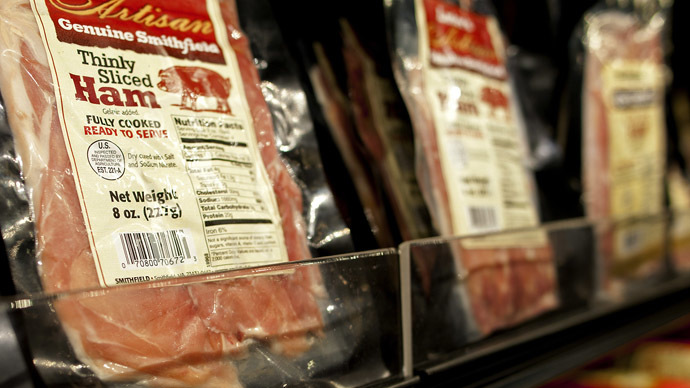Canada threatens duties on dozens of iconic US products

Canada says it may impose import duties on US-produced goods ranging from California wine to ketchup after a WTO ruling that US labeling did not meet international standards.
Canada has published a list of 38 American products that can potentially become subject to additional retaliatory tariffs. The list includes cattle and hogs, as well as a number of symbolic products such as California wine, Vermont maple syrup, Florida orange juice, ketchup and breakfast cereal.
The WTO ruled for the third time on Monday that the US country of origin labeling program known as COOL discriminated against Canada and Mexico. It said the US paid less attention to processing beef and pork imported from these countries, which is contrary to the rules of international trade.
The COOL policy means that only animals which were born, raised and slaughtered in the US could be given the label of US origin.
This means that meat packages should have a label saying something like “Born, raised and slaughtered in the US” or “Born and raised in Canada, slaughtered in the US.”
Both Canada and Mexico claim they are losing money because the US ignores the requirements. Non- compliance since 2009 has led to a decrease in pig and cattle exports from Canada.
In 2012 the COOL policy was amended, but both Canada and Mexico insist it remains discriminatory against their livestock and hurt their competitiveness with meats produced in the United States.
“The amended COOL increases the original COOL measure’s detrimental impact on the competitive opportunities of imported livestock in the U.S. market, because it necessitates increased segregation of meat and livestock according to origin; entails a higher record-keeping burden; and increases the original COOL measure’s incentive to choose domestic over imported livestock,” the WTO said in its decision.
Canada’s International Trade Minister Ed Fast told The Canadian Press that it undermines North American supply chains and costs the Canadian meat industries about $1 billion a year.
If WTO Appeals Organization doesn’t uphold their claim, Mexico and Canada can ask the organization to allow them to impose certain trade sanctions on the United States. Both countries have asked the US change the rules, otherwise they are ready to take countermeasures against US exports.
The US said that the best way to solve the problem is through a negotiated settlement, which would likely require Congress to change labeling rules. Canada has rejected the idea.
The US Chamber of Commerce, and the National Association of Manufacturers has said the rules should be immediately revised. American pork producers are lobbying Congress to fix the current rules saying they can't afford to sort, label and store meat from Canada differently than meat from domestic animals. In general, meat producers want to see the labeling policy reconsidered.
If Washington doesn’t comply with the WTO COOL policy, the federal government of Canada would consider imposing retaliatory tariffs measures on a number of US goods by next year.












